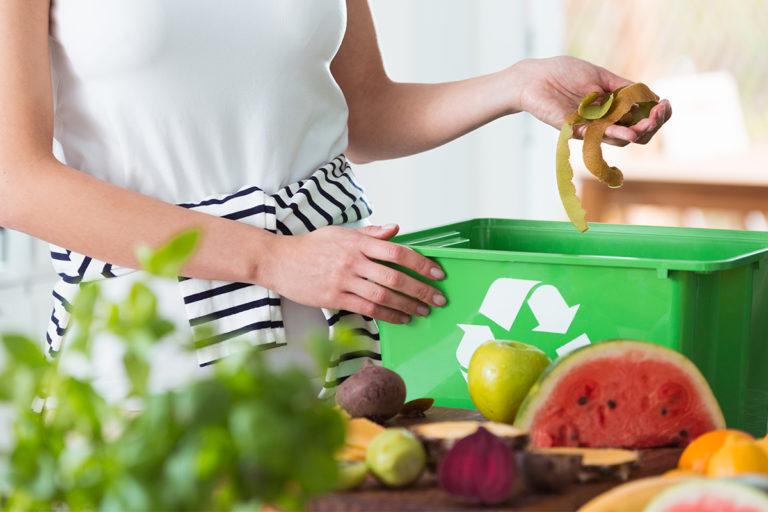Successful composting has been practised for many cultures around the world for thousands of years. The central idea was to return nutrients to the soil, and to improve crop yields and gardens.
Today, composting has become a crucial component of sustainable living, and it can save you lots of money too.
If you are new to composting, this article will help you understand how to get started, and make this part of your daily routine. Trust me, it is a lot simpler than you think, and you can reap significant rewards while doing your part for the planet.
Choosing a compost bin for your home
Begin by selecting a small compost bin for your kitchen scraps. We recommend choosing one that has charcoal filters because you can easily wash them, keeping odours away.
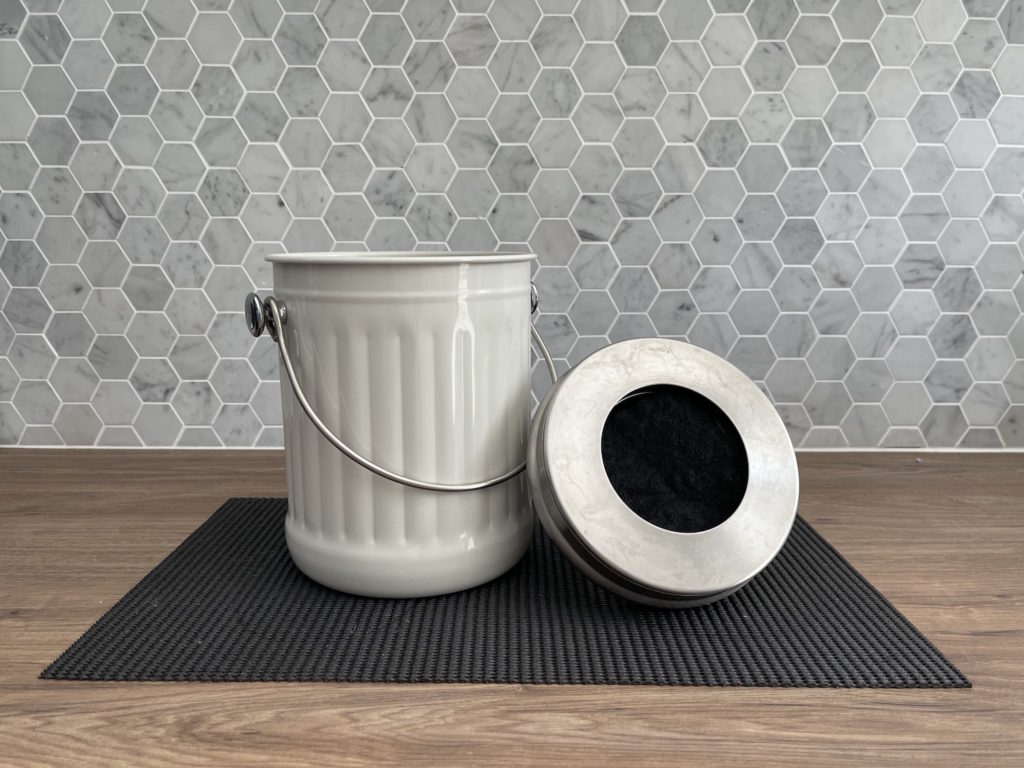
Choose a location for your compost bin. We keep ours in the laundry because it is right next to our kitchen, and it has more space.
Placing a larger compost bin outdoors
Add a larger compost bin to your garden, preferably in a spot that receives a good amount of sunlight. There are many options of compost bins, and some of them have their bottom open.
These types of bins allow the composting materials to be in contact with the soil underneath, and microbes and worms can easily go inside to help with the decomposition process.
For compost bin options, check this page https://tumbleweed.com.au/
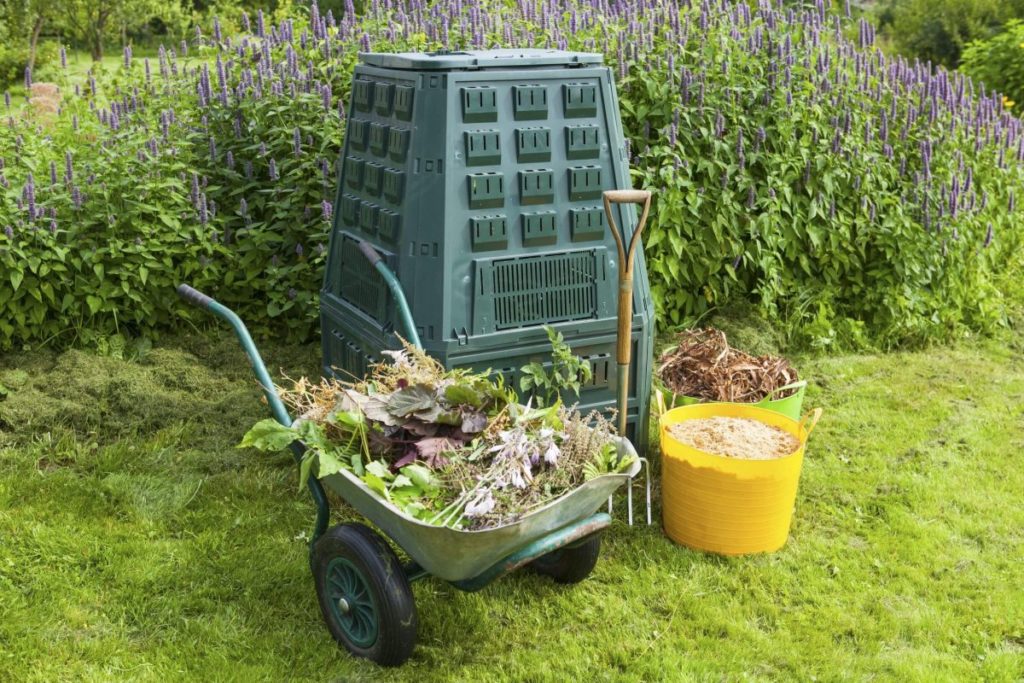
Balancing the food scraps
Successful composting requires a well-balanced combination of “brown” (carbon-rich) materials and “green” (nitrogen-rich) materials.
Collect kitchen waste like fruit and vegetable scraps and peels, coffee grounds, and eggshells, and combine them with garden waste such as leaves, grass clippings, and small branches.
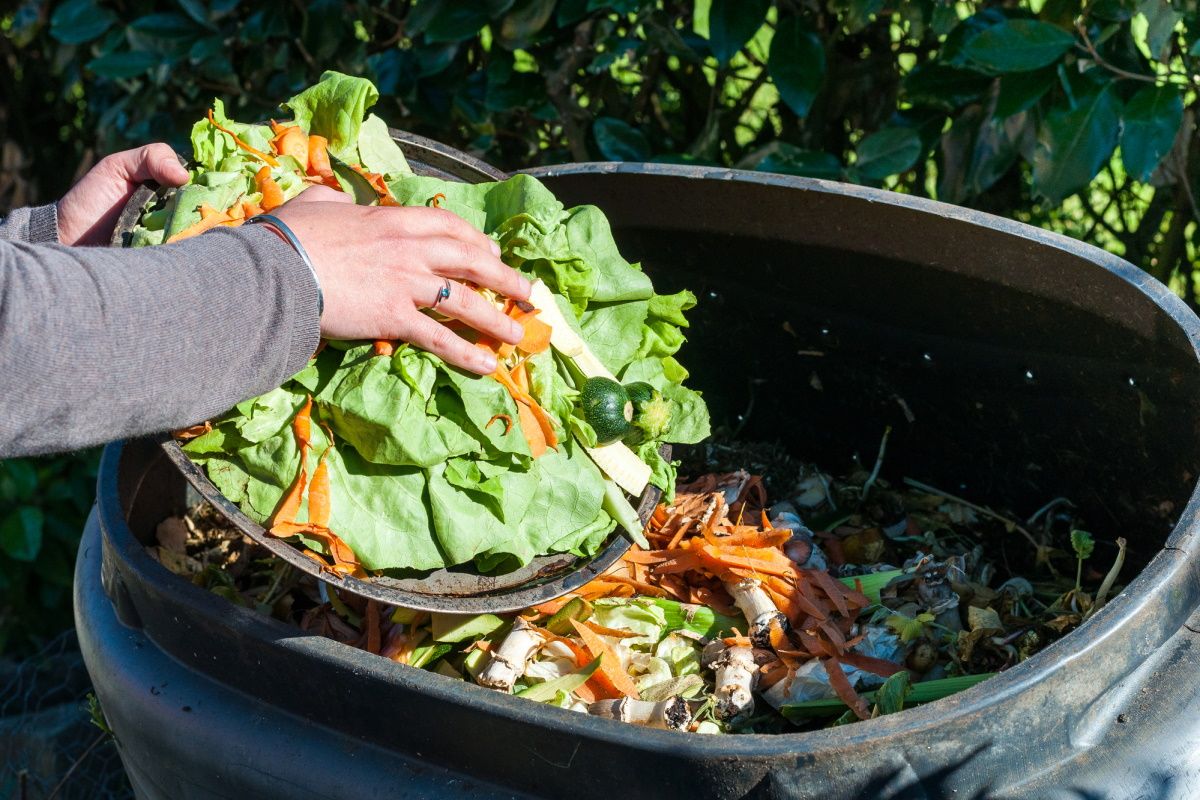
Be careful to remove stickers placed in fruits and vegetables before they are added to your compost bins. Some are made of plastic and they won’t decompose.
What happens inside your compost bin
Over time, microorganisms including fungi, bacteria and small insects will tear down the organic matter into simpler compounds.
During this process, heat is produced and this increase in temperature is a sign the composting process is working. The heat also helps to destroy pathogens and to kill off weed seeds.

This microbial activity will slowly consume the materials, and eventually transform your compost into a dark, nutrient-rich and crumbly substance known as humus which is an excellent fertiliser for gardening and landscaping.
How long will take to break down
Successful composting is not achieved instantaneously. The time it takes for organic matter to decompose in a compost bin can vary depending on several factors.
Some of these factors include the type, quantity, and size of food scraps. Also, what other materials were added to your compost bin.
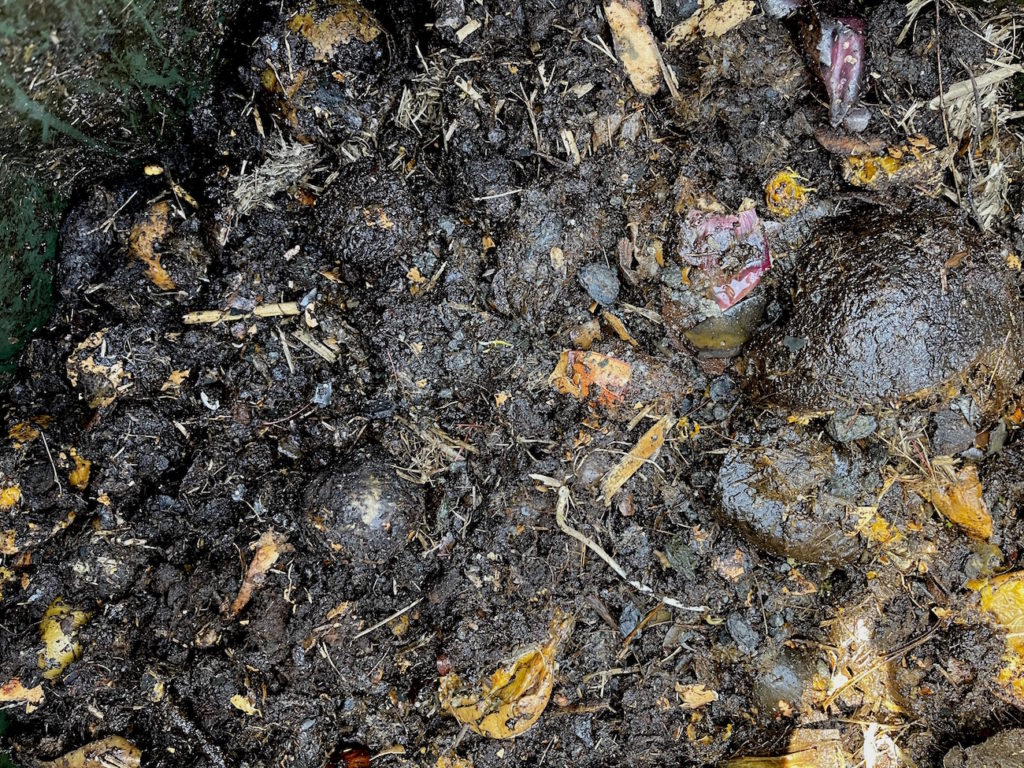
The composting conditions such as temperature, humidity level, and air quality inside your bin can also interfere in the decomposition process.
Expect from a few weeks to a few months for all organic matter to completely decompose. Be patient and you will be rewarded with a nutrient-rich compost for your plants and garden.
Add a variety of organic materials
You can add a variety of organic materials to a compost bin, but it’s important to maintain a balance between “green” (nitrogen-rich) and “brown” (carbon-rich) materials.
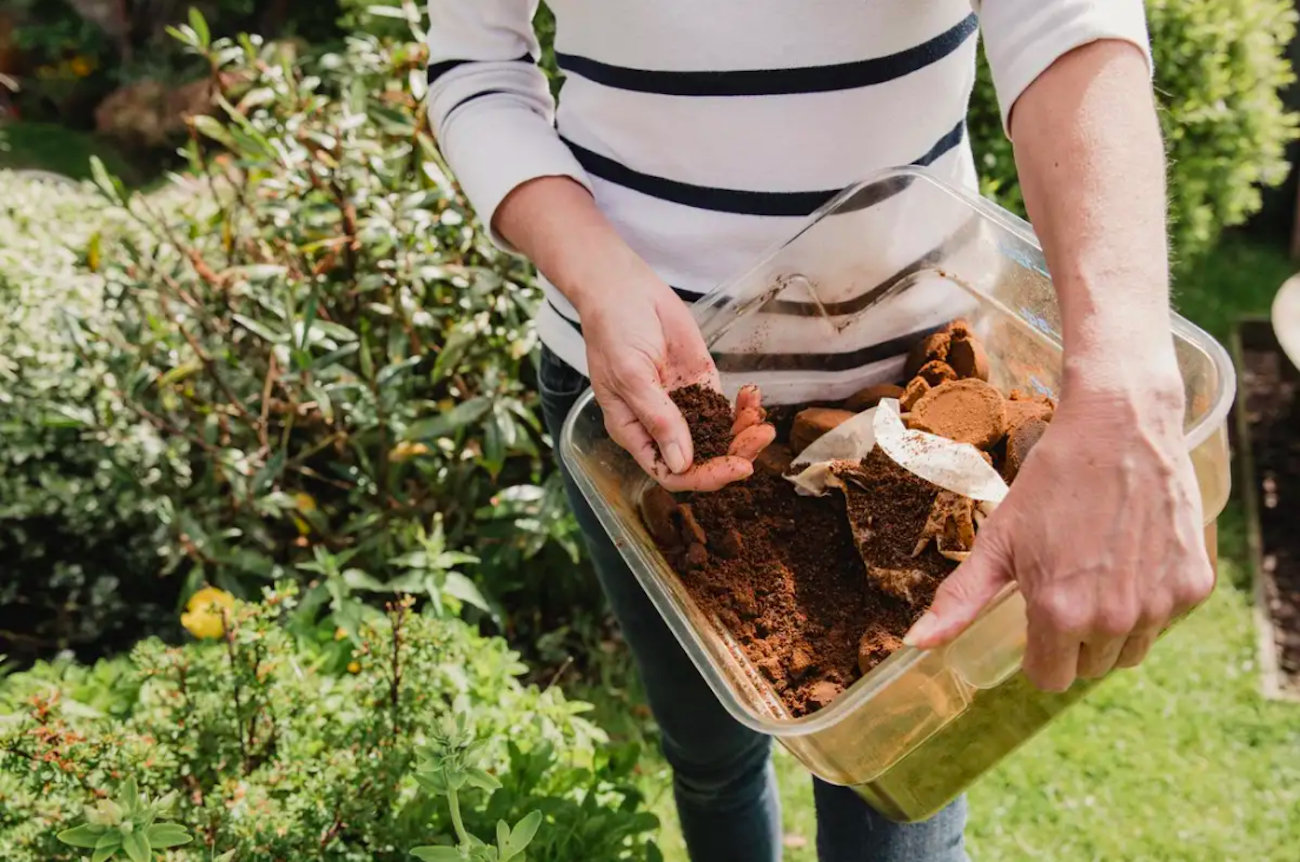
Here is a breakdown of what can be added to a compost bin. If you’re uncertain, it’s a good idea to research further to ensure your compost pile is healthy and ready to use.
Green Materials (Nitrogen-Rich):
- Fruit and vegetable
- Grounded coffee, and tea bags
- Grass clippings (small quantity)
- Plant trimmings
- Eggshells
- Fresh leaves
- Manure from herbivores (cows, chickens, horses)
Brown Materials (Carbon-Rich):
- Dry leaves
- Straw and hay
- Shredded newspaper (no glossy or coloured paper)
- Cardboard (shredded)
- Wood chips and sawdust (in moderation)
- Corn stalks and husks
- Dry, woody plant materials
Avoid adding to your compost
Certain materials can attract pests and create strong odours, and slow the decomposition process. Also, they can contain harmful pathogens that might not be fully eliminated during the composting process, and chemicals that you don’t want in your compost.
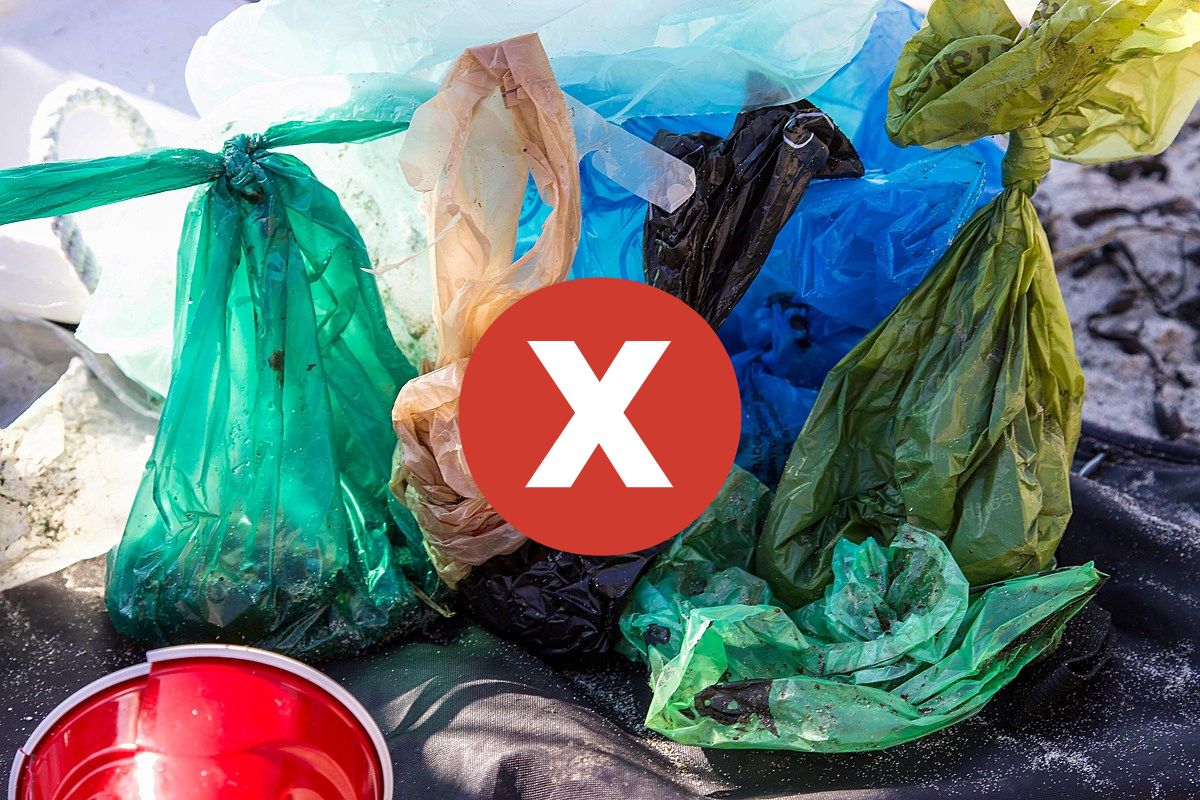
Avoid placing any cooked food, and don’t add these materials below to your compost bin:
- Meat and Fish
- Fats and Oils
- Dairy Products
- Diseased Plants
- Invasive Weeds
- Pet Waste
- Processed Foods
- Glossy Paper and Coloured Ink
- Building materials (painting, brick, metal)
Adequate aeration is important for successful composting
Remember to turn your compost regularly to aerate it. This is crucial for the success of the composting process because it provides oxygen for the microorganisms and bacteria responsible for breaking down the organic matter.
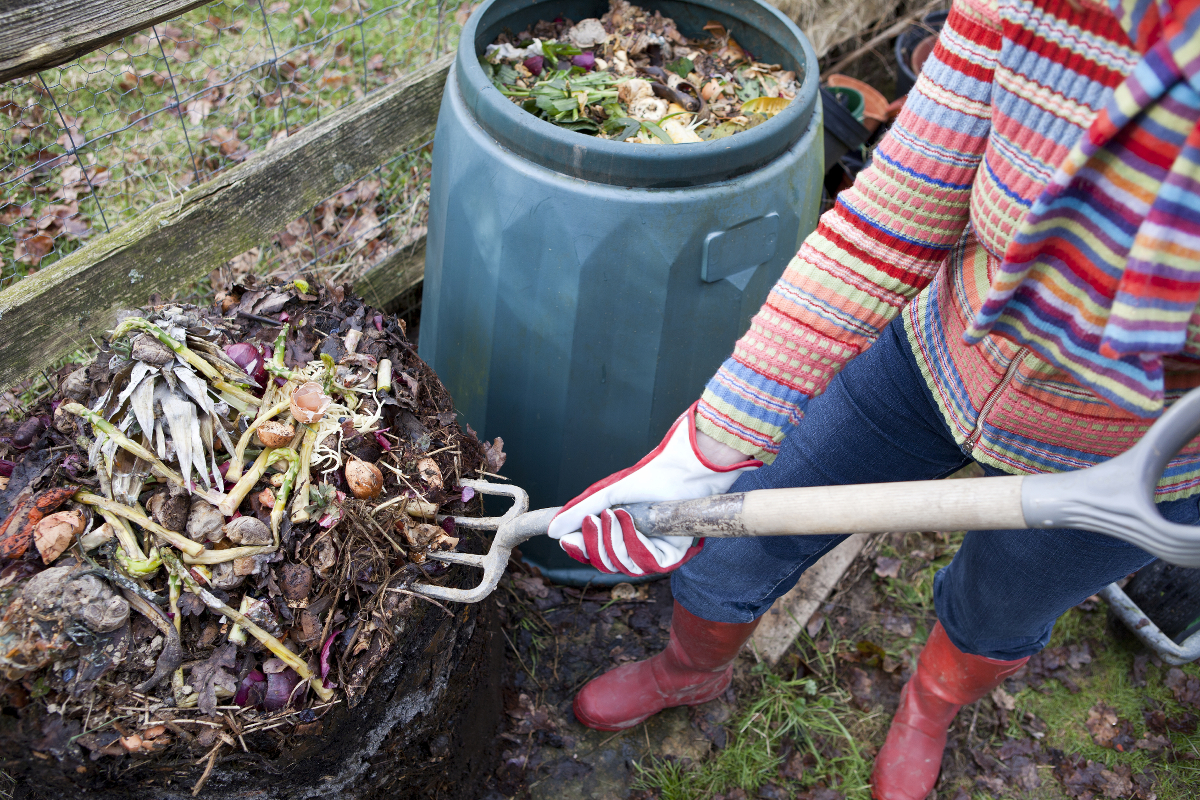
Aeration can be achieved by turning the compost pile using a garden fork, or opening the vents located on the side of your bin if this feature is built-in. Give your compost a good turn every 7-10 days, it will prevent the compost from becoming too compacted or smelly.
Tips for Successful Composting
- Add a small compost bin inside your home, and a larger outdoors. This will facilitate the process.
- Remember to maintain a balanced mix of green (nitrogen-rich) and brown (carbon-rich) materials.
- Keep the compost pile moist but not soggy, as excess water can slow down decomposition.
- Aeration is important, don’t skip this step as it can speed up the break down of materials.
- If you are short on space, consider worm composting using a worm bin.
- A compost bin is a crucial component of sustainable living, and it will help you save lots of money as you won’t need to be purchasing fertilisers anytime soon.
- Be patient and you’ll soon be amazed by the transformation of your waste into a valuable resource that nourishes your garden.

